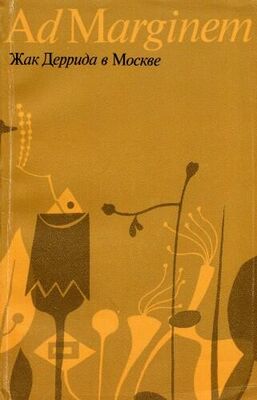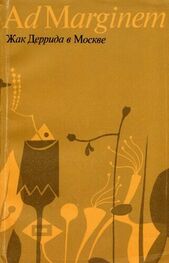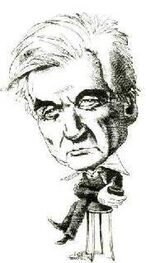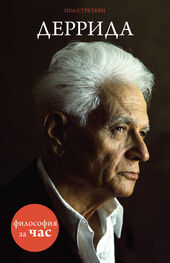«Les philosophes et la parole. Passage du témoin de François Georges à Jacques Derrida» // Le Monde. — 1984. — 21–22 oct.
«Women in The Beehive. A Seminar with J.D.» // Subject/Object. — Brown Univ., 1984. — Spring.
«Épreuves d'écriture» // Participation («Les Immatériaux» par J.-F. Lyotard et Th. Chaput). — Paris: Centre Georges-Pompidou, 1985.
«Le langage» // Douze Leçons de philosophie / Présentation de Christian Delacampagne. — Paris: La Découverte/Le Monde.
«But, beyond…» / Tr. P.Kamuf // Critical Inquiry. — 1986. — Autumn.
«Pardonnez-moi de vous prendre au mot» // La Quinzaine littéraire. — 1986. — № 459. — 16–31 mars.
«Petite fuite alexandrine (vers toi)» // Notes. Monostiches, one line poems / Publiées par Raquel. — 1986. — № 1. — Mai; repris in: E. Hocquard, Raquel. Orange Export Ltd. 1969–1986. — Paris: Flammarion.
«Antwort an Apel» / Trad. par Michael Wetzel // Zeitmitschrift. Journal fur Àsthetik. — 1987. — № 3.
«L'Œuvre chorale» avec Peter Eisenman // Vaisseau de Pierres 2. Parc-Ville Villete. — Champ Vallon, 1987.
«On Reading Heidegger» // Research in Phenomenology. — 1987. — Vol. XVII. — Topic: Reading Heidegger. — Humanities Press.
«Reply» // Jardine A. et Smith Р. Men in Feminism. — Methuen, 1987.
«La réponse de J.D.» (à V. Parias) // Le Nouvel Observateur. — 1987. — 27 nov. — 3 déc.
«Les chances de la pensée» // Légende du siècle. — 1988. — № 5. — 19 avr.
«Derrida-Bourdieu. Débat» (Lettre à Liberation, 19–20 mars 1988).
«Heideggers Schweigen» // Antwort. Martin Heidegger im Gesprach. — Pfullingen: Neske, 1988.
«Machtmissbrauch». Lettre à Die Frankfurter Allgemeine Zeitung. — 1988. — 16 mars.
«The Politics of Friendship» // The Journal of Philosophy. — 1988. — № 11. — Nov.
«Une nouvelle affaire». Lettre à La Quinzaine littéraire. — 1988. — 16–29 févr.
«Une lettre de Jacques Derrida» // Libération. — 1988. — 3 mars.
«Biodégradables. Seven Diary Fragments» / Tr. Р. Kamuf // Critical Inquiry. — 1989. — Vol. 15. — № 4. — Summer.
«Comment donner raison? „How to concede, with reasons?“» (bilingue, tr. J.Leavey) // Diacritics. — 1989. — Vol. 19. — № 3–4. — Heidegger, Art and Politics. — Fall-winter.
«La démocratie ajournée» // Le Monde de la Révolution française. Gazette du bicentenaire (mensuel). — 1989. — № 1. — Janv.
«Point de vue» [réponse à la question «Le seuil de tolérance, c'est quoi pour vous?»] // Libération. — 1990. — 22 janv.
«Force de loi. Le „fondement mystique de l'autorité“» // Deconstruction and the Possibility of Justice, Cardozo Law Review. — New York (bilingue), 1990. — Oct.
«Videor» // Passages de l'image. — Centre Georges-Pompidou, 1990.
«A letter to Peter Eisenman» // Assemblage. A Critical Journal of Architecture and Design. — 1990. — № 12. — Août.
«L'autre cap» // Liber. — 1990. — № 5. — Oct. (Le Monde, 29 sept. 1990).
«Let us not forget — Psychoanalysis» // Oxford Literary Review. — 1990. — Vol. 12. — № 1 et 2.
«La voix de l'ami», en hommage à Henri Joly // Cahier du Groupe de recherches sur la philosophie et le langage. — Grenoble, 1990. — № 12.
«Louis Althusser», texte prononcé à la mort de Louis Althusser // Les Lettres françaises. — 1990. — № 4. — Dec.
The présent volume addressed to the reader's attention creates a precedent: for the first time the original of a text by such an acknowledged contemporary philosopher as Jacques Derrida is published in Russian. There were occasions when his books appeared first in English, Italian and other European languages, but in Russian this happens for the very first time.
There is another difference: if the earlier publications of Derrida's works in foreign languages were always followed by the publication of the original text, in this case the translation itself will serve as the original, instead of the latter, taking its place. Jacques Derrida has done much to unmask such myths as the «original», «originary», «authentic», «order of presence», the privilege of the logos as voice, as that which precedes writing. And now his original text irreducibly acquires the form of translation, in its more than doubtful self-sufficiency, as a fragment of his own fragment which analyzes fragmentary notes, diaries and entries belonging to Etiemble, Gide and Benjamin, all of which Derrida unites under the headline of a special genre: «Back from the USSR».
The present book is a narrative about the possibilities of narration, a return to the return of Jacques Derrida from Moscow, water-marks of a trip he made in February-March 1990. These marks emerge through a deconstructive reading of various «back from the USSR» texts dating back to 1926–1937 when Moscow was the center of a world event — the Revolution.
Derrida's narrative minimalism in his «Back from Moscow, in the USSR» is aimed at avoiding the affirmation of a story yet without falling prey to the heroism of its total and final denunciation. The text is actually free from any evaluation directed inwardly toward the local context. The «criteriological mechanism» it sets into motion makes this text an invaluable guide for travelers (whose number today is really amazing) arriving in what used to be the USSR to wander among its ruins, diagnose its present or its future or «simply and unpretentiously to give an account of the seen».
During the two and a half years since Jacques Derrida's visit to Moscow so much has happened indeed: in the warming political climate the USSR, President Gorbachev, perestroïka, the CPSU, Leningrad and many other things — still seeming intact and reliably frozen in 1990 — have all melted away.
But socialism, collectivism, the «we-dimension» — how was this linked to the USSR that no longer exists, to Moscow — the epicenter of the revolutionary explosion? Is it possible that there was nothing behind it all except for a few «despots-pharmakons», in the terminology of J. Derrida? Why is it so that even having done away with them, having cursed their deeds and erased their names from the plaques of fate, we have no other destiny, and the new names are so suspiciously reminiscent of the old? How can one explain the exceptional stability of the logic of historical repetition in this European region?
These and other questions, provoked by the text of J. Derrida, are reflected upon by Moscow philosophers М. Ryklin, N. Avtonomova and V. Podoroga.
М. Ryklin's «Back in Moscow, sans the USSR» is a parallel reading of the same texts that J. Derrida analyzes in his work.
The conversation on philosophy and literature, which took place in Moscow during Jacques Derrida's visit and was proposed by the research associates of the Laboratory for Post-Classical Studies in Philosophy of the Russian Academy of Sciences Institute of Philosophy, places the issues in question within a broader philosophic context, raising the problem of how the strategy of deconstruction can be used in the analysis of various manifestations of both Russian and world culture.
The book ends with a concise biographical account of J. Derrida's life and work as well as a bibliography of his basic writings.
«Философия по краям»
Международная коллекция современной мысли
Литература. Искусство. Политика
Жак Деррида в Москве: деконструкция путешествия
Читать дальше




